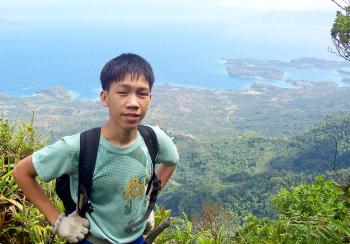The Incredible Optimism of a Poor Filipino Boy
In the Philippines, where nearly 1 out of 4 children does not complete a primary education, it is a significant achievement for children like Gary to finish elementary school.

Gary as mountain guide high above the Puerto Galera beaches. Michael Wolf/The Epoch Times
|Updated:


